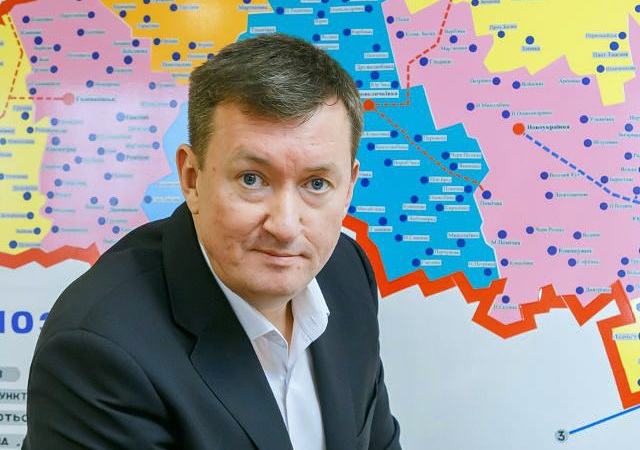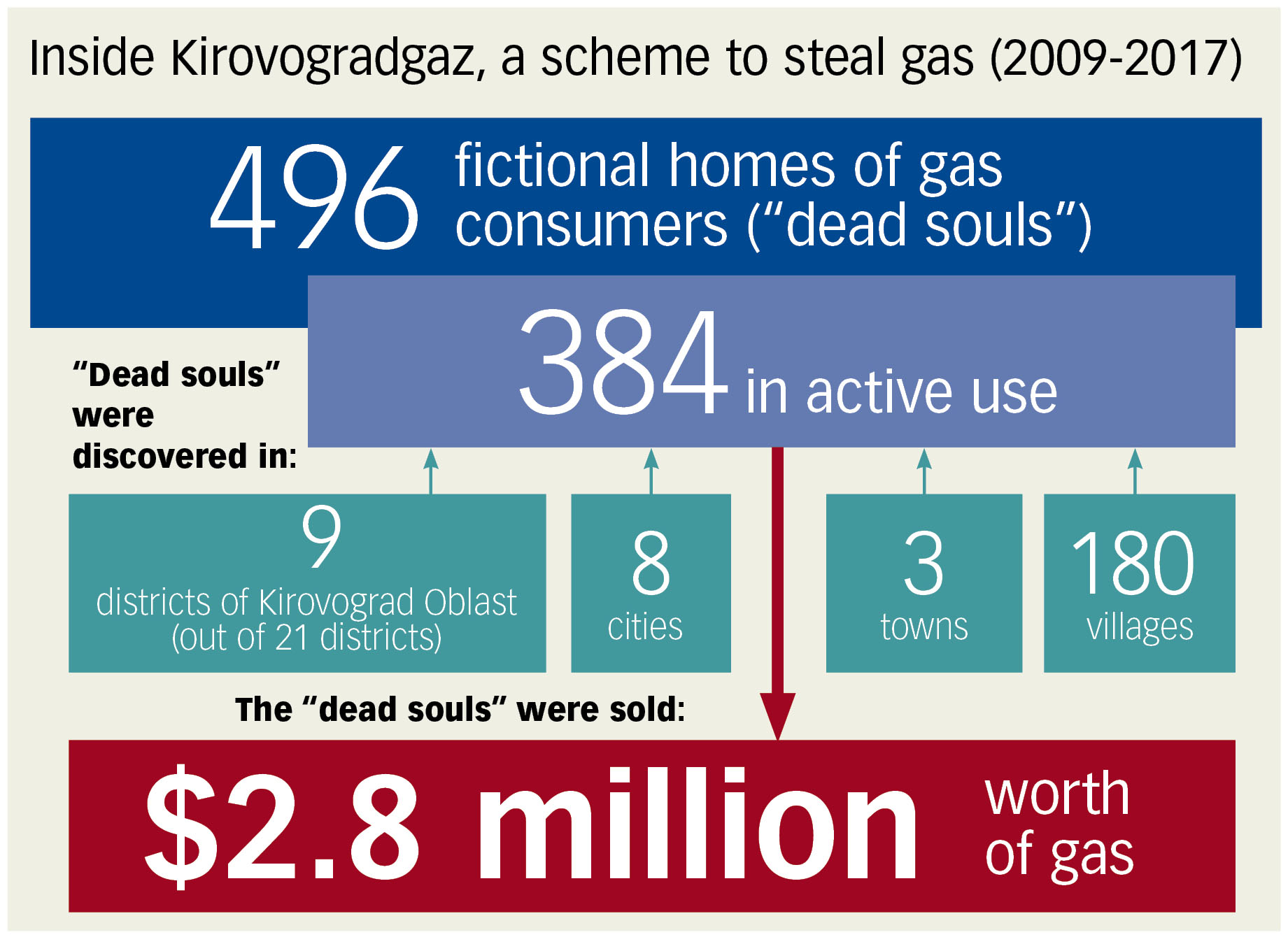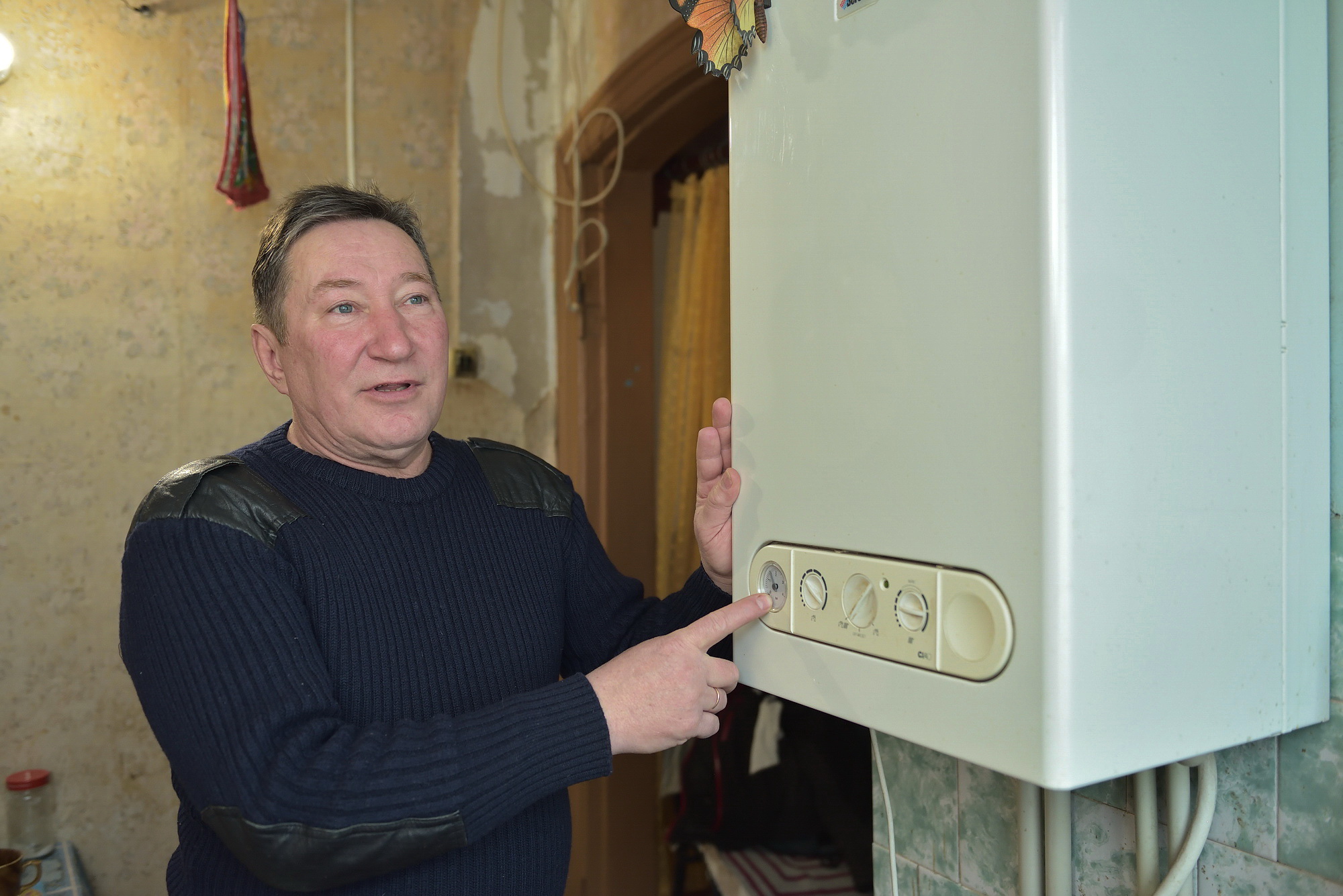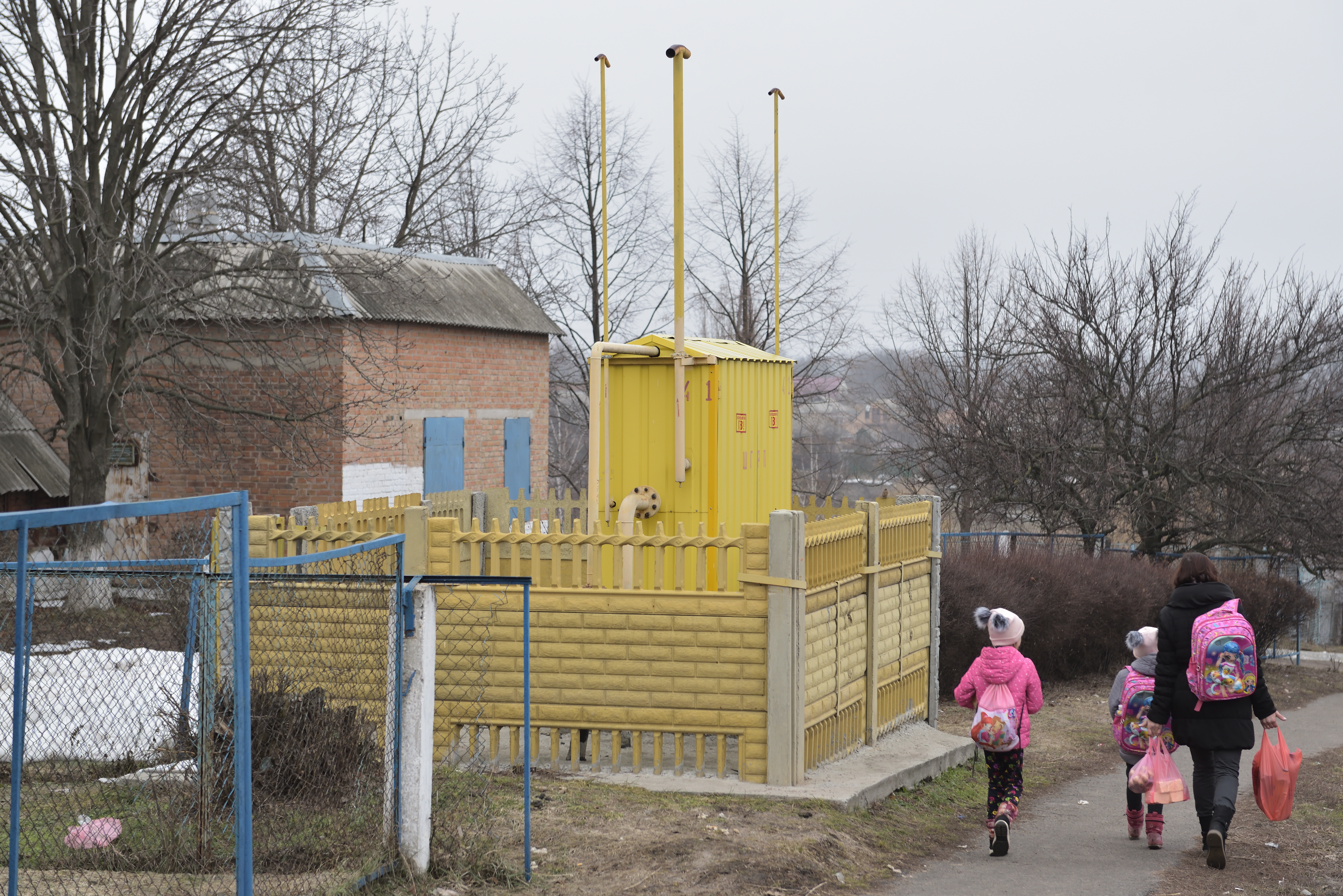Nestled along the Inhul River just 300 kilometers south of Kyiv, the Kirovograd Oblast capital of Kropyvnytskyi boasts an unexpectedly rich history.
Formerly known as Kirovograd, the city was the birthplace of Volodymyr Vynnychenko, a top leader of the short-lived Ukrainian People’s Republic in 1917–1919, and philosopher Afrikan Spir, who influenced Friedrich Nietzsche. Its center boasts an architectural ensemble combining neoclassical and baroque motifs.
But in the last two years, Kropyvnytskyi and the surrounding Kirovograd Oblast have attracted attention for something else: a corruption scheme to sell subsidized natural gas to imaginary people — termed “dead souls” after the novel by 19th century Ukrainian writer Nikolai Gogol — residing in nearly 500 fictional houses across the region. The gas was then likely resold to industrial and commercial clients at a much higher price.
“Bluntly speaking, a debt (for gas) hangs over society, and society cannot remove that debt from the dead souls,” says Alexander Gladky, who now leads the company where the scheme was discovered. “And the gas that was hung there is then sold at a commercial price.”
The scheme wasn’t particularly creative, according to Naftogaz, Ukraine’s state gas company. But that also means it probably wasn’t unique.
What happens in largely agrarian Kirovograd Oblast is likely happening elsewhere in Ukraine — potentially on an even larger scale.
Takeover
At the center of this story is Kirovogradgaz, the regional gas distribution company — or oblgaz in Ukrainian — responsible for delivering gas to Kirovograd Oblast.
In Ukraine, over 70 percent of all oblgazes are controlled by or affiliated with Dmytro Firtash, a Ukrainian tycoon who built his empire through business ties with Kremlin-controlled Gazprom. According to an investigation by the Biznes.Censor news site, Firtash controls 22 oblgazes, including 20 that are affiliated with his Regional Gas Company. Currently, Firtash lives in exile in Austria as he fights U.S. corruption charges that he denies, but his vast Ukrainian businesses are unaffected.
Additionally, the oligarch reportedly exerts control over six other oblgazes through an informal group of politicians and businesspeople.
According to Biznes.Censor, that group includes such figures as presidential candidate Yuriy Boyko, who formerly served as energy minister and deputy prime minister under ousted President Viktor Yanukovych, and lawmaker Serhiy Lovochkin, who was chief of Yanukovych’s administration.
Lovochkin’s office declined to comment, directing the Kyiv Post to the politician’s asset declaration, which listed six offshore companies. Boyko did not reply to a request for comment.
Critics of the oblgazes argue that they were created under Yanukovych to make money. This and their ties to Firtash have led to frequent accusations of corruption against the intermediary companies.
Firtash’s Group DF and Regional Gas Company declined to comment.
But the situation in Kirovogradgaz was different. There, Naftogaz was the majority shareholder, with 51 percent ownership of the company. However, it still couldn’t wrest management control from the minority shareholders.
Among these shareholders was Finlex-Invest, which owns 32.9 percent of authorized share capital in Kirovogradgaz.
According to Kirovogradgaz, Finlex-Invest is connected to Igor Voronin, who chaired Kirovogradgaz’s supervisory board before mid-2017. He is widely regarded as a Firtash business partner. Voronin did not reply to multiple calls and emails to the UkrGazEnergo company, where he is chairman of the board.
By law, management changes required a 60 percent quorum, allowing minority shareholders to effectively block such changes. After that law was changed, in June 2017 Naftogaz held an extraordinary meeting of Kirovogradgaz’s shareholders and fired the oblgaz’s supervisory board and restructured its management board. It appointed Alexander Gladky as chairman of the management board.
It was then that Naftogaz uncovered the scheme. On Sept. 25, 2017, Gladky filed a complaint with the Kirovograd Oblast branch of the National Police. In this document, he outlined the scope of the alleged crime.

Alexander Gladky was appointed chairman of Kirovogradgaz’s board after Naftogaz took control in 2017. (Courtesy)
Since 2009, the old management of Kirovogradgaz had inserted 384 fictional addresses into the billing system known as Gasolina. The addresses were spread across nine of Kirovograd Oblast’s 21 districts. They were located in eight cities, three towns, and 180 villages, according to the filing. Each address came with an account number, which was also fictional.
Further details of these fictional gas consumers are sequestered away behind the ongoing criminal investigation into the scheme. But statements by Kirovogradgaz and Naftogaz officials paint a fuller picture.
Since the initial filing, Kirovogradgaz has uncovered more “dead souls.” Currently, their number stands at 496 fictional addresses, although those discovered later were no longer active, Gladky told the Kyiv Post.
As a rule, these were nonexistent private houses — as opposed to apartment buildings — with nonexistent address numbers on real streets. There were also fictional residents. After all, why would an empty house consume gas?
And consume they did. Kirovogradgaz allocated excessively large volumes of natural gas to the “dead souls,” according to Yuriy Vitrenko, Naftogaz’s business development director.
“It’s stupidly simple,” he told the Kyiv Post in a July 2018 interview. “It’s easy to check that there’s no such address. For example, if there’s a street that has 50 buildings, there will be a 51st building in this database.”
“It’s not something unique. Nobody really tried to hide it,” he added.
But as banal as the scheme was, it also proved effective. Between 2009 and 2017, the fictional households “consumed” roughly 9.8 million cubic meters of natural gas — worth around Hr 78.4 million ($2.83 million).
Where does it go?
Stealing gas may be illegal, but it is also big business. While precise statistics are near nonexistent, Anders Aslund, an economist and senior fellow at the Atlantic Council, estimates that around a third of gas sold for domestic consumers in Ukraine may actually be getting resold to industry.
“I think (this scheme) is enormously common because we know that household consumption of gas in Ukraine has been enormous by any standard,” Aslund told the Kyiv Post by phone. “One explanation is that prices are very low, but we also know that Ukrainian houses are small and most people don’t have much space, and also that it’s not very hot (inside the homes), unlike in Russia.”
In the 1990s, Ukraine’s natural gas barons made their money as middlemen selling Russian gas inside Ukraine. At the time, the Russian gas price was roughly half of the Ukrainian one, making this middleman role extremely profitable. Often, the resellers didn’t even pay for the gas, and simply transferred the debt to the Ukrainian government, according to Aslund.
However, in the 2000s, Moscow began charging more for gas, particularly in 2009, while pro-Western Viktor Yushchenko was president of Ukraine. That’s when the types of schemes discovered in Kirovogradgaz began to appear, Aslund says.
But the scheme also exists because of differential pricing inside the Ukrainian gas market. Traditionally, Ukrainian households have purchased gas at an artificially low price, while industry has not received the same subsidies. Today, Ukraine has a free market for industrial gas for enterprises, but domestic prices remain low.

Since November, the Ukrainian government has increased domestic gas price — a key demand by the International Monetary Fund for the country to continue receiving financial support. Still, domestic prices currently amount to only 65 percent of industrial ones, according to Oleksandr Kharchenko, director of the Energy Industry Research Center. As a result, the theft of gas is still profitable.
And once the gas is stolen, it is virtually impossible to trace where it goes. Due to the nature of the pipeline system, gas stolen in Kirovograd Oblast cannot easily be transported outside the oblast without being converted into liquified natural gas. Although Kirovograd Oblast is largely rural, even the local agricultural and food production industries use natural gas, making them potential buyers for the stolen fuel.
“This gas is not marked. All enterprises that consume gas use it,” Andriy Gerus, head of the Association of Consumers of Energy and Utility Services, told the Kyiv Post in a message: “The companies just buy the gas from a (gas) trader. At home, you don’t know what kind of electricity you’re using — atomic or something else.”
Local heating
Gas theft may be a commercial crime, but its real victims are ordinary people. Kirovograd Oblast is hardly the most economically dynamic region of Ukraine and it faces a challenging demographic situation.
Salaries are low and it is difficult to find work. Young people leave to study and work in other regions, says Volodymyr Zaichenko, a Kropyvnytskyi city council member and dean of the economics and management department at the local Central Ukrainian National Technical University.
The population is growing older, and Ukraine’s elderly, who frequently live on miserly state pensions often struggle to pay for basic needs like utilities.
For this reason, gas prices and the government’s decision to raise them are a sensitive issue.
“I was talking with the manager of one housing cooperative today, and she said that (the residents) relate very negatively to this decision because the living standard doesn’t allow pensioners and lower-income people (to afford it),” Zaichenko says. “It’s very difficult for them to pay.”
Prices for heating from the two local heating companies are high. This has led to at least half the population of Kropyvnytskyi to switch to autonomous heating. This means that, rather than paying the heating companies and using centralized heating, they set up their own private furnaces.
This offers one distinct advantage: the individual or family now consumes gas for heating directly and is more likely to economize.
For Viktor Malko, 61, autonomous heating is the only option. He uses a gas-burning furnace to heat his home in a neighborhood of single-family homes in Kropyvnytskyi that is not hooked up to the centralized heating network.
Although he is a pensioner, Malko works as a security guard for a private company. Nonetheless, he and his wife struggle to pay for gas. They used to receive a subsidy to pay for it, but recently requirements have grown more stringent.
Malko’s son is legally registered at their home, but does not live there. Previously, to receive their subsidy, they would simply need to receive an official document certifying that he does not reside at their home. Now, however, they will need to deregister him. Viktor Malko does not want to do that.
He also isn’t happy with the rising gas prices.
“Damn, it’s the murder of the population,” Malko says, noting that he has met no one who supports the government’s decision to raise prices. “Gas, electricity, water, even garbage — everything is getting more expensive.”

Viktor Malko, 61, shows off the gas furnace he uses to heat his house on the outskirts of Kropyvnytskyi on Feb. 20, 2019. To save money, Malko’s workplace and one of his neighbors have switched over to wood-burning furnaces. Despite the high cost of gas, Malko says he’d rather not return to what he terms “the 19th century.” (Olena Karpenko)
However, some people — including one of Malko’s neighbors and his workplace — have found an old solution to the gas prices: they use wood-burning furnaces.
Although Malko feeds wood into the furnace at work, he’s still skeptical.
“I know that a wood-burning stove is smoke, it’s soot, it’s the 19th century,” he says.
Local problems
In reality, autonomous heating is good, say many people knowledgeable about the energy and heating situation in Kirovograd Oblast.
Beyond pushing consumers to economize, a total transition to autonomous heating would eliminate the role of the heating companies, a significant source of tension in the natural gas sector.
When previously asked by the Kyiv Post about claims that its oblgazes don’t pay Naftogaz for gas, Firtash’s Group DF has placed the blame on local heating companies, which receive gas from the oblgazes. Other experts have suggested that unprofitable heating companies, many held in communal property, often incur debts to Naftogaz. They cannot pay, but it’s also difficult to cut them off because these enterprises have social significance.
But without a unified database of gas consumers, it is extremely difficult to understand why debt is accumulating in the gas and heating system.
Disagreements about debt have erupted several times in Kirovograd Oblast. Most recently, on March 14, Kirovogradgaz cut the gas supply to local heating company Kirovogradteplo, according to the Depo Kropyvnytskyi news site.
The reason, according to Kirovogradgaz’s Gladky, was that the heating company had not paid for the gas it consumed. If it did not pay, then Kirovogradgaz would be billed, he told the Kyiv Post.
The shutoff, which left around 150 buildings without heat, caused a local scandal. The mayor’s office appealed to the Security Service of Ukraine for help. Protesters gathered in front of Kirovogradgaz’s headquarters to demand Gladky be fired. Ukrainian deputy Prime Minister Gennady Zubko ordered the Prosecutor General’s office to look into the situation.
Ultimately, Kirovogradgaz restored the heating under two days later.

A mother and two children pass by a gas compressor station in the city of Kropyvnytskyi on Feb. 20, 2019. High prices from local heating companies have led more than half the residents of Kropyvnytski to switch from centralized heating to using personal furnaces in their homes. That means they directly consume natural gas and can better economize. (Olena Karpenko)
It was not the first such confrontation. In November 2017, Kirovograd also shut off the gas to several heating company furnaces for two days. That time, the oblast prosecutor’s office opened a criminal case against Gladky, accusing him of abusing his office. The court case is ongoing.
Gladky says his actions were lawful within the framework of Ukraine’s gas transit system code.
He describes conflicts between oblgazes and heating companies over debt as “characteristic not just for Kirovograd Oblast, but for all of Ukraine.”
Still haunting Ukraine
Despite its struggles, Gladky says that his oblgaz is fighting back against the “dead souls.” After initially being submitted to the Kirovograd Oblast police department, the case is currently under investigation by the General Prosecutor’s Office.
“The fact that they gave it to the general prosecutor shows that the importance is higher,” Gladky says.
Additionally, the Big Four accounting firm Deloitte is carrying out an independent audit of Kirovogradgaz. The report is scheduled for completion and public release in the coming weeks.
More broadly, Gladky is optimistic that as Ukraine liberalizes the gas market, schemes like the one discovered in Kirovograd Oblast will die out. If gas for domestic users is sold at the same price as commercial gas, there will be no incentive to resell it to industry at a markup.
If Ukraine creates a unified database of gas consumers, as proposed in January by Naftogaz CEO Andriy Kobolev, that will also help to ensure that gas deliveries are traceable and the precious fuel is less likely to be stolen.
But until then “dead souls” may continue to haunt Ukraine’s natural gas sector.
“Kirovogradgaz has proven that this precedent exists,” Gladky told the Kyiv Post, adding that it’s not his job to say where else it exists.
But few have any doubts. Naftogaz’s Vitrenko believes similar schemes are being utilized in other regions of Ukraine — particularly where Firtash’s companies are active. He has been a vocal critic of Firtash, frequently publicizing Naftogaz’s struggle with the Ukrainian oligarch.
Kirovograd Oblast is one of Ukraine’s least developed regions. He suggests that “dead souls” schemes would be more profitable in oblasts with more industry and particularly in places where one tycoon controls both local industry and the regional gas pipeline system.
“We believe that (this case) can and should be extrapolated,” Vitrenko told the Kyiv Post. “There are no reasons to believe that it should be an exception.”
Josh Kovensky contributed reporting to this story.
Editor’s note: This story was produced with support from the Organized Crime and Corruption Reporting Project, a Kyiv Post partner.
